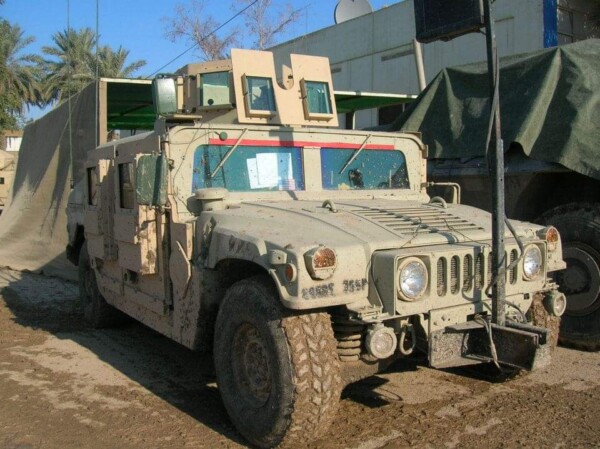Lynise Grell has a knack for putting herself in other people’s shoes.
She spent eight years in the U.S. Army as a military-police officer. During an 18-month deployment in Iraq, from 2005 to 2006, she still couldn’t help but think of others.
When she was on patrol, Iraqi citizens were required to stay 100 meters from her vehicle at all times. Sometimes roads would get so crowded they couldn’t help but be closer. Even as Grell and her fellow soldiers dodged attacks and improvised explosive devices, she was thinking about the other guy.
“I remember thinking, how weird would it be to go outside, and your country’s occupied and you have to follow those rules,” Grell said.
Grell’s group, Maricopa Women Veterans, was created in July as an offshoot of the Maricopa Veterans group, which started in 2018. Both groups are private on Facebook to give veterans a place to discuss issues away from public view.
“Basically, all I did was make a Facebook group for it,” Grell said. “I started adding people, you know, nothing super fancy, but just gave the women somewhere else to be. It’s just them and they can talk.”
Grell is on the planning committee for Maricopa’s Veterans Day parade. While that has taken a lot of her time, she’s got plans for group members to get together to talk about shared experiences.
Looking to get somewhere
Grell’s decision to join the Army came in 2004, about a year after graduating high school in Tucson.
“I felt like I wasn’t going anywhere at home. I was kind of stuck,” she said.
A few people told her they thought she might have a future in the military. A high score on the Armed Services Vocational Aptitude Battery further convinced her to look into a military career.
“They told me that my score was high enough (that) I could do anything I wanted,” Grell said.
She enlisted and went through basic training at Fort Leonard Wood in Missouri and decided to become an MP. First deployed to Germany, she was re-deployed to Iraq in 2005.
As an MP, her duties included traffic stops, traffic-control points and helping with gate security at military bases. In Iraq, her company conducted route-patrol missions and trained Iraqi police officers.
Despite the cultural divide — things are quite different for women in Iraq than the United States — Grell saw few differences.
“It wasn’t too bad,” she said. “When I spent time in Germany … you’re out on the town and you’re a tourist and you’re hanging out. In Iraq, you’re either on the forward operating base or you’re in your vehicle or doing whatever mission.”

“The radical element were the people attacking us,” Grell said. “We never saw that day-to-day with the people we came into contact with.”
As Grell arrived in Iraq, political pressure, led in part by the late Arizona Sen. John McCain, was mounting back home to send more troops to Iraq to gain control. It was called “The Surge.”
Due to the troop build-up, her 15-month assignment in Iraq was extended by three months.
“We were part of that,” Grell said. “We were 30 days from going home and our operations sergeant came running out and told us that we’d just gotten extended.”
Eventually, Grell and her unit left Iraq. She said she was fortunate to not be deployed to Afghanistan.
“We got mortared and rocketed a lot while in Iraq and I can’t imagine them doing that from the mountains where they had a little bit better aim, like in Afghanistan.”
This content was first published in the November edition of InMaricopa magazine.

![Lynise Grell spent eight years (2004-12) in the Army as a military-police officer. She was deployed to Germany and re-deployed to Iraq, where her unit helped train Iraqi police. [Brian Petersheim Jr.]](https://www.inmaricopa.com/wp-content/uploads/2022/10/Lynise-Grell.png)






![MHS G.O.A.T. a ‘rookie sleeper’ in NFL draft Arizona Wildcats wide receiver Jacob Cowing speaks to the press after a practice Aug. 11, 2023. [Bryan Mordt]](https://www.inmaricopa.com/wp-content/uploads/2024/04/cowing-overlay-3-218x150.png)




![Alleged car thief released without charges Phoenix police stop a stolen vehicle on April 20, 2024. [Facebook]](https://www.inmaricopa.com/wp-content/uploads/2024/04/IMG_5040-218x150.jpg)




